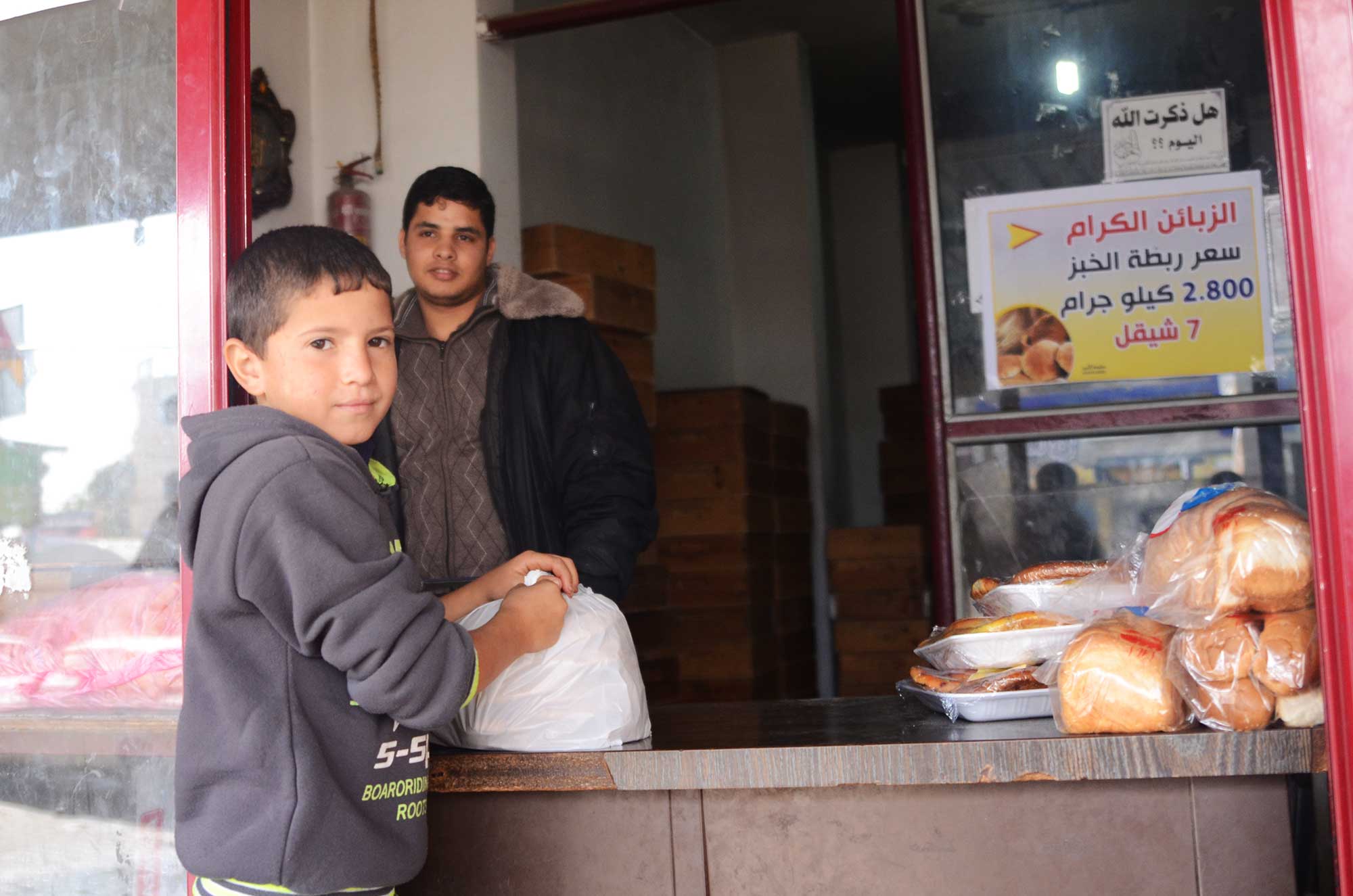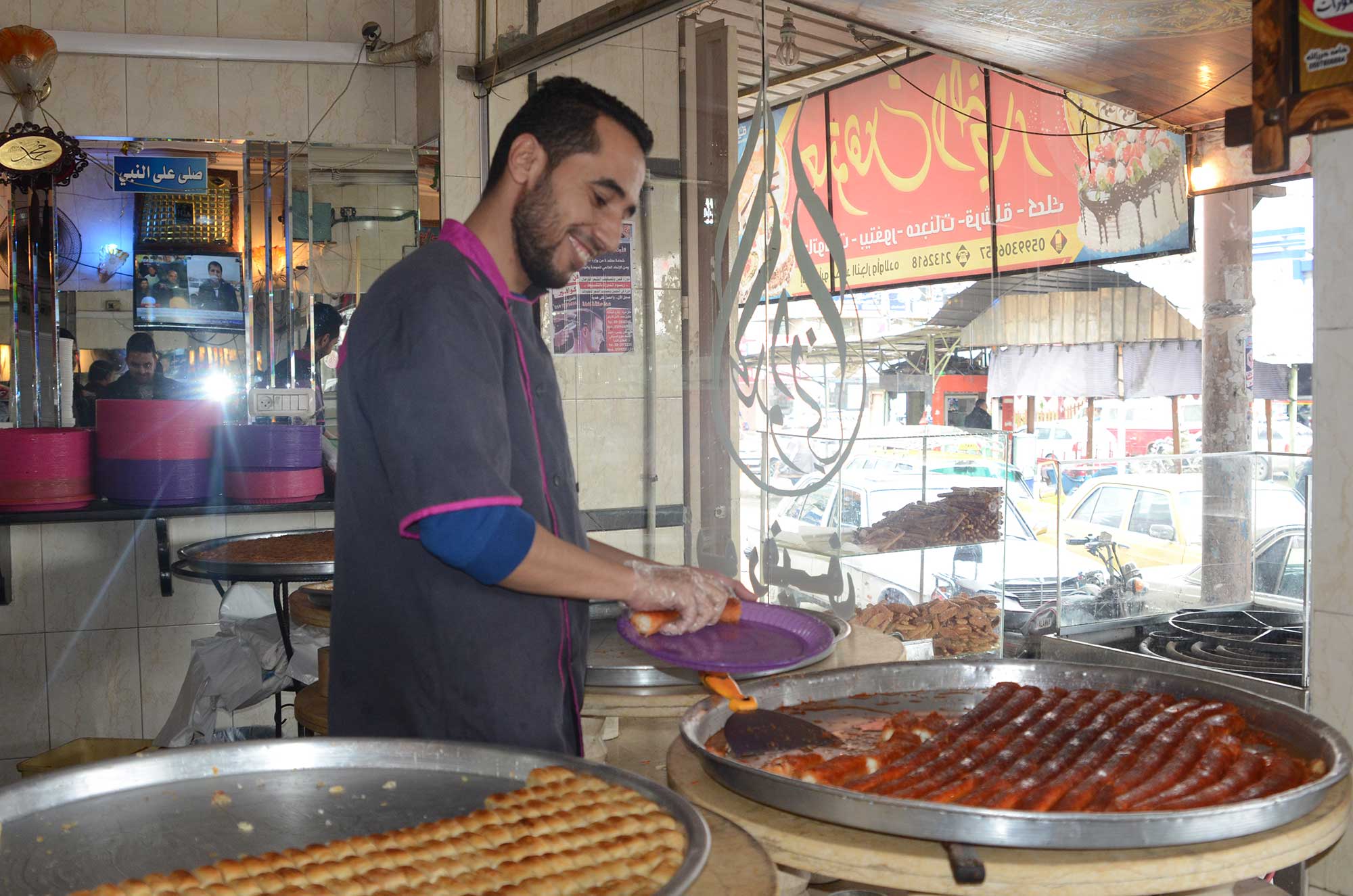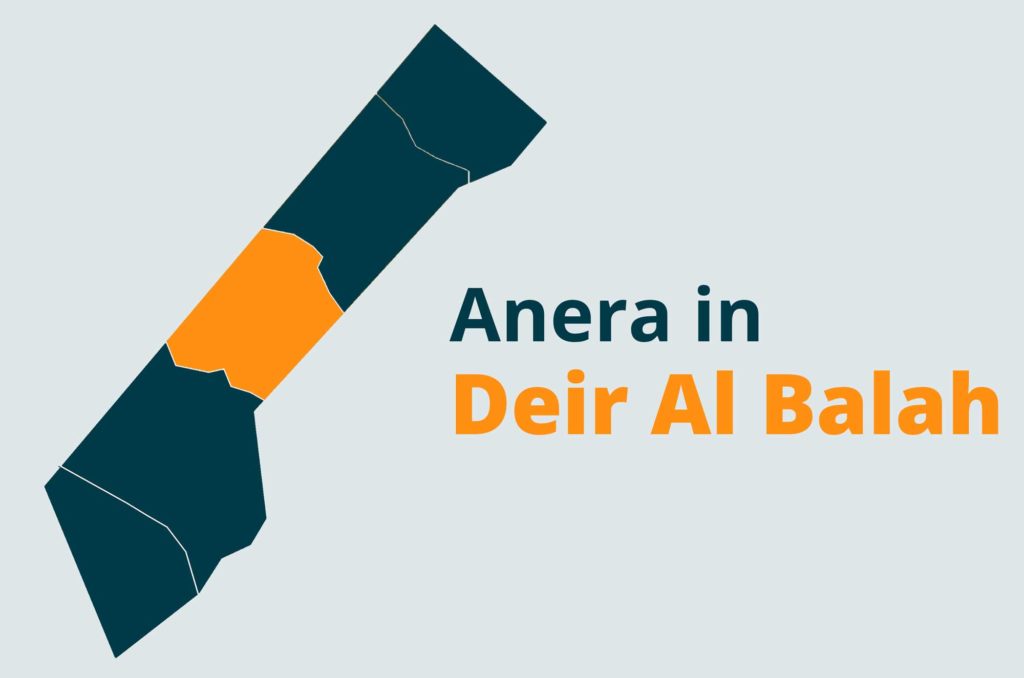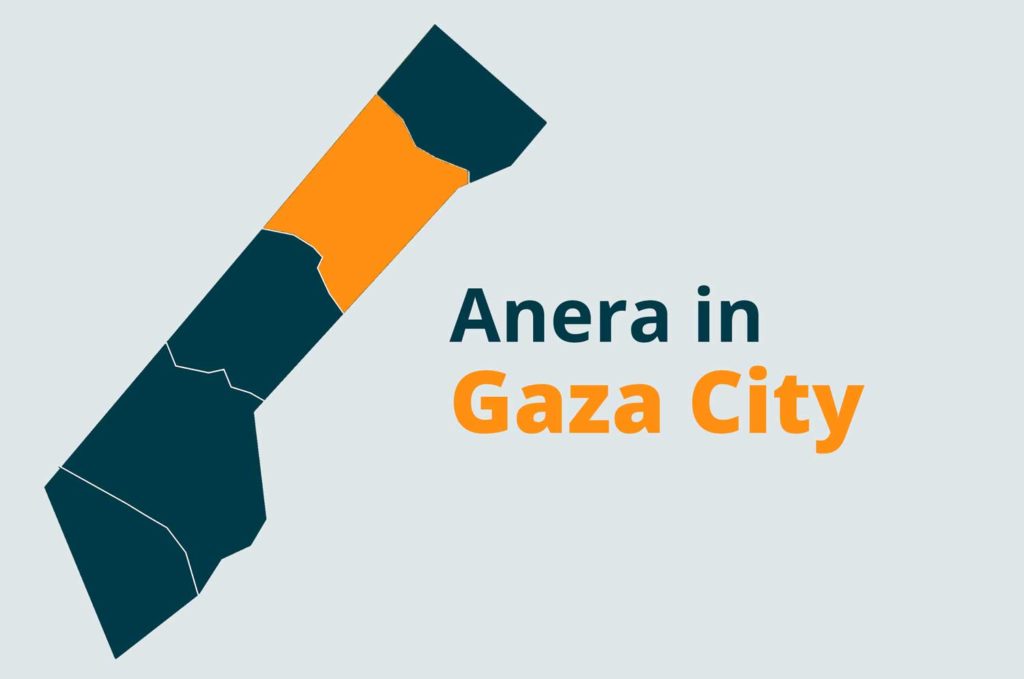Jan, 2016
The Rafah area of Gaza suffers from extreme water shortages. In the best of times, many residents receive water through their taps just once every four days, for only a few hours at a time.




“This shop is the only source of income for my family. When I run out of water, it's an emergency."
The Gaza water crisis makes it challenging for families to save enough water for daily and household usage. So running a small business on top of that seems nearly impossible. Yet, families in Gaza need to generate income to meet basic needs, and their options are limited.
Mohammed El-Dosouqi knows this all too well. As the owner of a bakery and sweet shop on a busy street in Rafah, maintaining health and hygiene standards to keep his business open has been a struggle.
“When I run out of water, it is an emergency here,” Mohammed explains. “Water cannot be missed for five minutes in this business, believe me!” Mohammed continues. “Prep work in bakeries involves extensive work and cleaning. Hygiene is key to ensuring that the bread and other confectionery products served to customers are safe for consumption.” Despite using gloves to serve his customers, Mohammed washes his hands and fingernails carefully to prevent any cross-contamination.
When he opened the shop six years ago, he prepared the best he could by diligently collecting and updating contact numbers for tankered water suppliers. “I placed a long list of numbers on my microwave. I even have back up numbers to call,” he says. However, the water he purchases is expensive, cutting into his profits.
“This shop is the only source of income for my family, and my parents live with me too,” Mohammed explains. Yet, most of the year, people in Gaza spend their money on more essential products. It’s only during the holiday season that the business thrives. “Still, we strive to get by.”
Anera Upgrades Water Networks in Rafah
Mohammed begins the day by neatly stacking different Palestinian treats, like knafeh, pastries and cakes in front of the large display window. His smile never fades as he washes the windows and goes about his morning routine.
Fortunately, running a business just got a little easier for Mohammed and many others like him. With USAID funding under the Palestinian Community Infrastructure Development (PCID) program, Anera connected four neighborhoods in Rafah to a more reliable water source. Mohammed’s neighborhood is one of them.
His face lights up when asked about the new water connection. “Having a regular water supply is a huge relief!”
He used to purchase water to fill his tank every two days. Often, he’d stay late into the night hoping some water would flow from the taps that he could use to fill his tanks. “Now I only fill my tanks once a week,” Mohammed says. “Because water is readily available, I stay up late in the shop intentionally to clean my equipment, the utensils, the surfaces and the floors!”


Mohammed is now saving money, which he and his family depend on. “Buying water was a financial burden for me, but now it is much reduced,” he says. He can even afford to give his customers discounts, creating more business for the shop and delighting his patrons. As passersby hurry along on this bright morning, the sweet aroma of Mohammed’s shop is a taste of comfort amid daily hardships.
Anera’s PCID program is combating the Gaza water crisis by connecting 50,000 residents in the Jeneina, Mashro’a, Barazil and El-Salam areas of Rafah to a reliable source of water. Anera replaced and repaired the deteriorated and damaged water networks, reducing water losses and improving the overall quality of life for Rafah’s residents. Visit the PCID website>>


